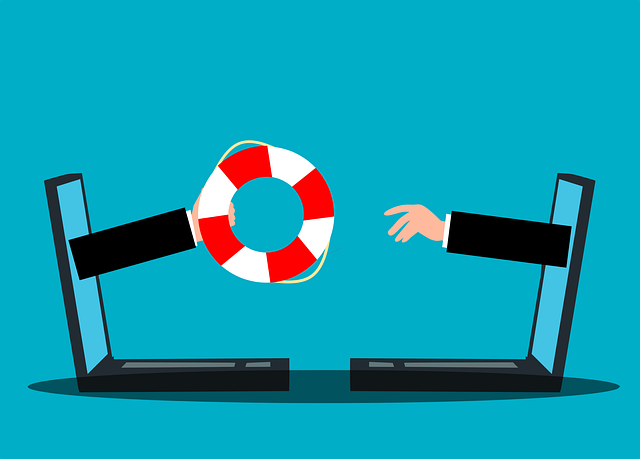Business insurance is a vital shield against diverse risks and potential financial setbacks, offering comprehensive coverage for unforeseen events like property damage, liability claims, cyberattacks, and business interruptions. Key elements include property damage and liability coverages, which safeguard businesses from substantial losses. Employee-related risks require specialized policies addressing workplace injuries, illnesses, disputes, hiring mistakes, discrimination, and wrongful termination. Professional services businesses need tailored insurance for unique challenges like professional liability, errors & omissions, and data breaches. Business interruption coverage assists with downtime, crisis management, legal aid, and expert advice. In the digital era, understanding cyber risk and data protection is crucial. Reviewing policy details ensures adequate protection against industry-specific risks, with tailored endorsements or policies filling gaps in coverage.
Understanding what does business insurance cover is crucial for any enterprise aiming to safeguard its assets, protect employees, and mitigate risks. This comprehensive guide explores various coverage options tailored to diverse business needs. From property damage and liability to cyber risks and employee protections, we delve into essential aspects of business insurance. Additionally, we navigate policy terms, exclusions, and industry-specific requirements, empowering businesses to make informed decisions for robust risk management.
Understanding the Basics of Business Insurance

Business insurance is a safety net that protects against potential risks and financial losses. It’s designed to cover a wide range of unforeseen events, from property damage and liability claims to cyberattacks and business interruption. Understanding what business insurance covers is essential for any company looking to safeguard its operations, assets, and future prospects.
At its core, business insurance provides financial compensation for various types of damages or incidents. For instance, general liability insurance protects against claims of bodily injury or property damage occurring on your premises. Property insurance, on the other hand, covers losses related to physical assets like buildings, equipment, and inventory. Additionally, business interruption insurance can help compensate for lost revenue during periods when operations are suspended due to insured events.
Property Damage and Liability Coverage

Property Damage and Liability Coverage are essential components of any comprehensive business insurance policy, answering the question: What does business insurance cover? These policies protect businesses from significant financial losses resulting from unforeseen events. Property damage coverage shields against physical losses to a business’s assets, including buildings, equipment, and inventory, ensuring their replacement or repair. This is particularly vital for businesses operating in areas prone to natural disasters like floods, hurricanes, or earthquakes.
Liability coverage, on the other hand, safeguards against legal repercussions and financial obligations arising from injuries or property damage sustained by third parties on business premises. It includes general liability insurance that covers typical risks, such as slips and falls, product defects, or professional negligence. This protection is indispensable for businesses to maintain financial stability and avoid bankruptcy due to unexpected legal claims.
Employee-Related Risks and Protections

Employee-related risks are an integral part of running a business, and comprehensive business insurance should account for these potential liabilities. What does business insurance cover in terms of employee protection? Well, it provides a safety net against various claims and incidents involving your workforce. This includes protections against lawsuits related to workplace injuries, illnesses, or even employment disputes. For instance, if an employee sustains an on-the-job injury, business insurance can help cover medical expenses, lost wages during recovery, and legal fees if necessary.
Moreover, this coverage extends to employment practices that could expose your company to risk. Mistakes in hiring, discrimination claims, or wrongful termination suits are all potential scenarios where the right insurance policy can shield your business from significant financial losses. By ensuring adequate employee-related protections, businesses can focus on fostering a safe and fair work environment while being prepared for any unforeseen legal challenges.
Professional Services and Industry-Specific Needs

Professional services businesses, including legal firms, consulting practices, and tech startups, often require specialized business insurance coverage tailored to their unique industry-specific risks. Unlike general commercial policies, these niche insurance plans account for the distinct challenges and potential liabilities faced by professional service providers. For instance, professional liability insurance safeguards against claims of malpractice or negligence in areas such as legal services, accounting, or consulting.
When considering what does business insurance cover for professional services, it’s crucial to explore options that extend beyond standard general liability. Industry-specific coverage may include errors and omissions protection, which shields against financial loss resulting from mistakes or oversights in professional work. Additionally, some policies incorporate data breach liability coverage, recognizing the heightened risk of data security breaches in today’s digital age.
Business Interruption and Recovery Options

Business interruption and recovery options are vital components of any comprehensive business insurance policy. When discussing what does business insurance cover, these elements stand out as critical protections for organizations facing unforeseen challenges. Business interruption coverage steps in to mitigate financial losses during periods when operations must cease due to covered events like natural disasters or civil unrest. It provides a safety net by offering funds to maintain fixed expenses and support the business while it recovers.
Recovery options extend beyond simple reimbursement, focusing on getting businesses back on their feet as quickly as possible. This can include services like crisis management, legal assistance, and expert advice tailored to help organizations navigate complex situations and resume operations with minimal downtime. By offering these options, business insurance not only compensates for immediate financial setbacks but also fosters resilience and swift recovery.
Cyber Risks and Data Protection Insurance

In today’s digital age, where businesses heavily rely on technology and data, cyber risks have emerged as a significant concern. What does business insurance cover in this regard? Cyber risk and data protection insurance is designed to safeguard businesses from financial loss and reputational damage caused by cyberattacks, data breaches, and other related incidents. This specialized coverage can help businesses recover quickly and mitigate the impact of such events.
These policies typically include expenses related to incident response, forensics, credit monitoring for affected customers, and legal fees. They also may cover business interruption losses if a cyberattack disrupts operations. Understanding what is covered in your business insurance policy is crucial, as it can vary greatly among providers and specific plans. Ensure you review the details carefully to ensure adequate protection against these evolving digital threats.
Additional Coverages to Consider

When evaluating your business’s insurance needs, it’s crucial to look beyond the basics covered by a standard policy. Understanding what does business insurance cover is just the starting point. Consider additional coverages tailored to your industry and specific risks. For instance, businesses dealing with data management should consider cyber liability insurance to protect against data breaches and hacking incidents.
Professional services industries might benefit from errors and omissions coverage, which shields against financial loss due to mistakes or omissions in your professional services. Similarly, if your business involves physical locations, you may want to explore property insurance options that extend beyond standard building coverage, including losses from natural disasters or vandalism.
Navigating Policy Terms and Exclusions

Navigating policy terms and exclusions is a crucial step in understanding what does business insurance cover. Policies often come with detailed language that can be complex, making it essential to read and comprehend every clause carefully. This includes familiarizing yourself with covered risks, limits of liability, deductibles, and specific exclusions. Exclusions are important as they outline what the policy doesn’t cover; for instance, certain natural disasters, employee disputes, or willful acts might not be included in standard business insurance policies.
By thoroughly reviewing these terms, businesses can ensure they have adequate protection tailored to their unique needs. It’s not just about finding a policy with broad coverage; it’s equally vital to recognize gaps and consider additional endorsements or policies to mitigate risks that fall outside standard business insurance parameters.
